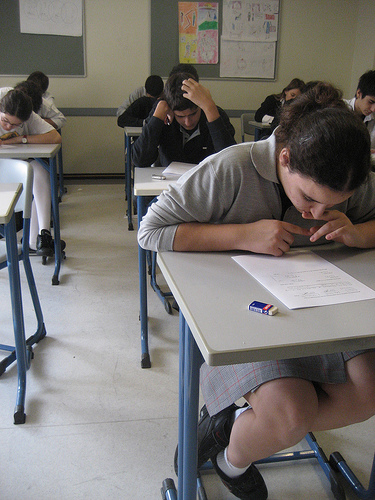 Over the past decade, the Turkish government has more than tripled its spending on education in an effort to implement a wide array of reforms to improve student performance. Despite these efforts, Turkey continues to lag behind other member countries of the Organization for Economic Cooperation and Development (OECD).
Over the past decade, the Turkish government has more than tripled its spending on education in an effort to implement a wide array of reforms to improve student performance. Despite these efforts, Turkey continues to lag behind other member countries of the Organization for Economic Cooperation and Development (OECD).
In the 2012 Program for International Student Assessment (PISA) report, Turkey’s educational system ranked 42nd when compared with the 65 countries evaluated. In each of the three subjects measured, mathematics, reading and science, Turkish students demonstrated low performance. In all categories they scored below the mean score for OECD countries.
Although still behind other OECD countries, Turkish students have demonstrated improvement since the last survey was performed in 2009. Specifically, their average scores improved 6.4 points in the sciences, 4.1 points in reading, and 3.2 points in mathematics when compared with previous years. These scores reflect progress that has been made with students with the weakest educational records and with low socioeconomic backgrounds.
In an effort to continue with this progress, the Turkish government anticipates increasing its educational expenditure by 15% to $38.5 billion in 2014. Despite these efforts, it remains uncertain whether these funds will be enough to fix ongoing problems with the educational system.
Turkey’s educational system currently struggles largely due to inconsistent policies and an overwhelming number reforms. Not only have there been five different Ministers of Education in the past eleven years, but there have also been yearly changes made to the educational system. With change happening so quickly, students, teachers and parents are unable to keep up.
Işil Oral, at Sabanci University’s Educational Reform Initiative commented on these educational reforms, stating “if you have a sustainable education policy, there is no need to make all these changes all the time. These changes are affecting kids. It looks like a trial-and-error policy. You can’t try something for a year and then change it, saying it’s not working…It is not a good influence on students, teachers, parents and school principals. Everybody is confused.”
Creative Commons Love: Ccarlstead on Flickr.com
Written by Amanda Lubit